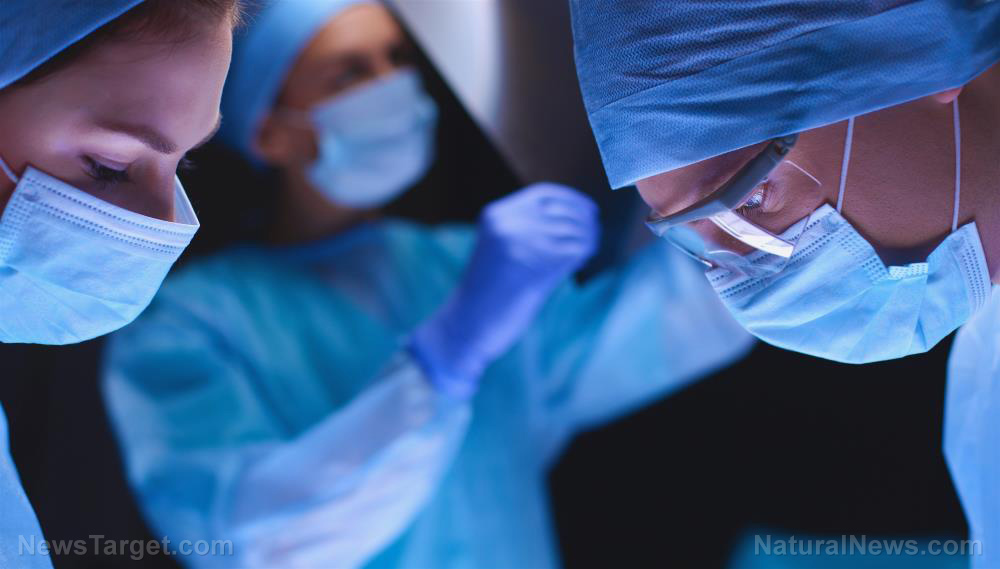Having surgery? Take your probiotics: Research reveals gut health can impact the risk of post-surgical complications
05/25/2019 / By Tracey Watson

There’s no doubt about it: Surgery is scary. Anyone who knows they will be going under the surgeon’s knife in the near future likely has concerns, and with good reason. Post-operative complications like blood loss, nerve damage and infection are actually quite common.
One of the most dangerous – and even life-threatening – of these complications is infection. As reported by Natural Health 365, of the 50 million people who undergo inpatient surgery each year, about 300,000 will develop infection at the incision site, while many more will develop systemic infections like sepsis and pneumonia.
There is good news for those about to undergo surgery, however. A study published in the peer-reviewed journal Gastroenterological Research and Practice in 2017, found that taking a multi-strain probiotic (a formulation with no less than three different strains of bacteria) before surgery reduces the risk of postsurgical infection – both localized and systemic – by a whopping 70 percent. (Related: Anesthesiologists spread dangerous infections during surgery because they don’t wash their hands.)
Massive reduction in postoperative infection
The researchers, who are all associated with Lanzhou University in China, set out to determine the effects of taking probiotics before surgery to prevent postoperative infection in patients undergoing colorectal resection. To do so, they undertook a meta-analysis of all randomized controlled studies that had investigated this connection.
Nine studies, with a combined total of 1,146 patients, were included in the final analysis.

The team found that a combination of three or more probiotic bacterial strains was beneficial in reducing the total number of postoperative infections, both at the surgical site and other, nonsurgical site infections.
The researchers reported:
It should be noted that the formula, dose, and treatment duration of the probiotics vary considerably between studies, because there was no data to establish an optimal prophylactic treatment. We analyzed the different formulas of probiotics for postoperative infection; the results indicated that a combination of multi-strain bacteria (at least three) has the significant effect on total infections, SSI, and NSSI after colorectal surgery.
As noted by Natural Health 365, multi-strain probiotic supplementation reduced the incidence of pneumonia by 75 percent, urinary tract infections (UTIs) by 61 percent and life-threatening sepsis by 56 percent.
And these benefits were obtained without any adverse reactions or effects.
This was not the only study or analysis to determine that probiotic supplementation reduces the risk of surgical infection.
Natural Health 365 reported:
An additional review published in December in the Journal of Clinical Medicine strongly supported the protective effect of probiotics.
After assessing numerous studies involving over 3,000 patients who had undergone major abdominal surgery, the authors reported that probiotic supplementation was associated with a significant decrease in surgery-related complications.
Specifically, they noted decreases in infections at the site of the surgery – and fewer systemic infections such as pneumonia, sepsis and urinary tract infections.
In addition, supplementation was linked to a shorter duration of antibiotic therapy, shorter duration of post-operative fevers and shorter hospital stays.
Increase your consumption of probiotics
In addition to supplementing with a multi-strain live probiotic for several weeks before undergoing surgery, it would also be wise to increase daily consumption of probiotic-rich foods. These include:
Yogurt: Live bacteria can be killed in the processing of yogurt, so be sure to choose an unsweetened, natural brand with live or active cultures.
Kefir: It may look like a cauliflower, but kefir is actually a culture formed by lactic acid bacteria and yeast. It improves bone health, clears up digestive problems, and – most importantly – protects against infection.
Other probiotic foods include sauerkraut, tempeh, kimchi, miso, kombucha, pickles, buttermilk and certain cheeses, including gouda, mozzarella and cottage cheese.
Learn more at Nutrients.news.
Sources include:
Submit a correction >>
Tagged Under:
gut health, healing, immune system, infection, Pneumonia, postoperative infection, prevention, probiotic foods, probiotics, recovery, remedies, research, sepsis, surgery, surgery complications
This article may contain statements that reflect the opinion of the author





















